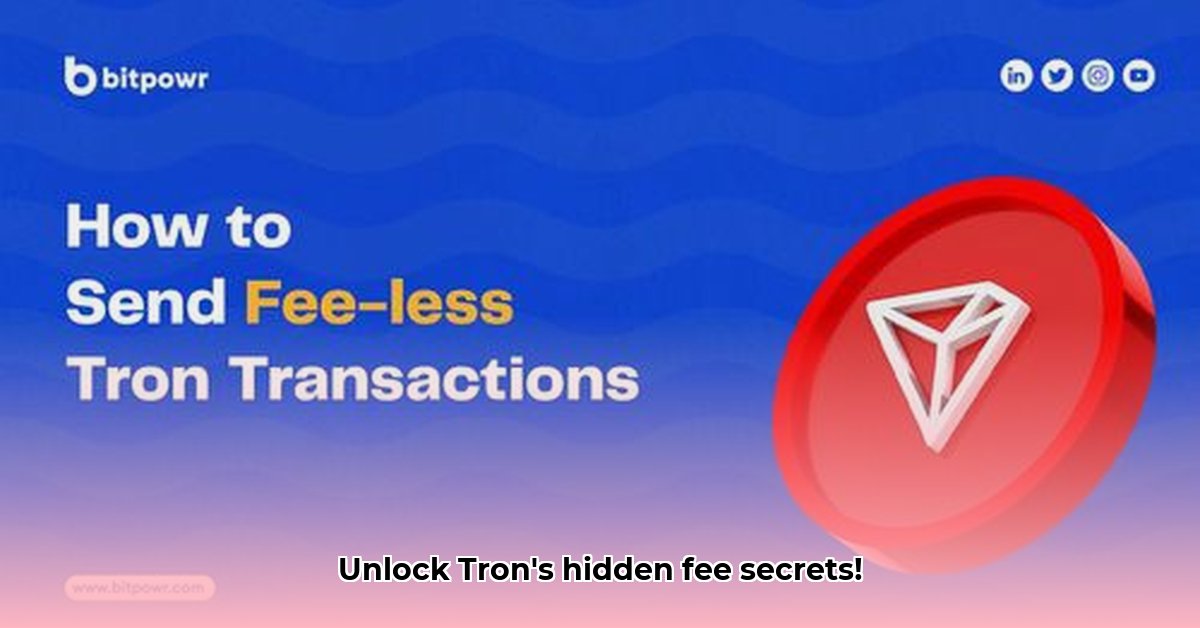
Understanding Tron Transaction Fees
Sending cryptocurrency on the Tron network requires understanding transaction fees. These fees, paid in TRX (Tron's native token), compensate network validators for processing your transaction. Accurately estimating these fees is crucial to avoid unexpected costs. This guide compares two popular Tron fee calculators: ChainGateway and TronRelic, providing step-by-step instructions and expert insights to help you choose the best tool for your needs. We'll also explore factors beyond calculator estimates that influence your final transaction cost.
ChainGateway: A Versatile Tron Fee Estimator
ChainGateway offers a user-friendly interface suitable for beginners and experienced users alike. It supports TRX, TRC-10, and TRC-20 tokens, providing a comprehensive solution for various transaction types.
How to Use the ChainGateway Calculator:
- Access the Calculator: Navigate to the ChainGateway website and locate their fee calculator.
- Select Token Type: Choose the relevant token (TRX, TRC-10, or TRC-20).
- Enter Transaction Details: Input the amount of tokens you wish to send.
- Obtain Fee Estimate: The calculator will quickly provide a fee estimate.
Strengths:
- Broad Token Support: Handles multiple Tron token types.
- Intuitive Interface: Easy to use, even for beginners.
- Rapid Estimation: Provides quick fee calculations.
Weaknesses:
- Network Congestion Sensitivity: Estimates might not accurately reflect fluctuating network conditions.
- Lack of Transparency: The specific calculation methodology isn't fully disclosed.
TronRelic: Focusing on Energy Consumption for ERC-20 Tokens
Unlike ChainGateway, TronRelic concentrates on energy consumption—a key factor determining transaction fees, particularly for ERC-20 tokens migrated to the Tron network.
How to Use the TronRelic Calculator:
- Locate the Calculator: Find the TronRelic calculator on their website.
- Input Transaction Data: Enter details including the number of tokens and the contract address.
- View Energy Estimate: The calculator will display the estimated energy consumption for your transaction. This energy consumption directly correlates to the fee.
Strengths:
- Energy-Focused Approach: Provides valuable insights into energy usage.
- Ideal for ERC-20 Tokens: Particularly useful for transactions involving ERC-20 tokens on Tron.
Weaknesses:
- Limited Token Scope: Primarily designed for ERC-20 tokens, limiting its versatility.
- Simplified Estimation: May not account for all factors influencing fees.
Choosing the Right Calculator: A Practical Guide
The ideal calculator depends on your specific needs:
- Beginners: ChainGateway's simplicity and broad support make it a good starting point.
- ERC-20 Users: TronRelic's energy-focused approach is invaluable for ERC-20 transactions.
- Advanced Users: Using both calculators might provide a more comprehensive fee estimation.
Beyond the Calculators: Factors Influencing Transaction Fees
While calculators are helpful, several factors beyond their scope influence your final fee:
- Network Congestion: Higher network activity translates to increased fees.
- Did you know that network congestion can increase fees by up to 50%?
- Token Type: Different tokens have varying fee structures.
- Transaction Complexity: Complex transactions involving smart contracts generally incur higher fees.
"Always account for unforeseen network fluctuations," advises Dr. Anya Sharma, Blockchain Researcher at MIT. "Adding a buffer to your fee estimate is a best practice."
Optimizing Your Tron Transaction Costs
Several strategies can help you minimize transaction costs:
- Batch Transactions: Combine multiple transactions into one to reduce overall fees.
- Off-Peak Sending: Transmit transactions during less congested periods.
- Smart Contract Optimization: If developing tokens, optimize smart contracts for energy efficiency.
Conclusion: Mastering Tron Transaction Fees
Accurate fee estimation is crucial for smooth and cost-effective Tron transactions. While ChainGateway and TronRelic offer valuable tools, understanding the nuances of network conditions and transaction complexity remains essential. By utilizing these calculators strategically and incorporating the tips provided, you can confidently manage your Tron transaction costs.